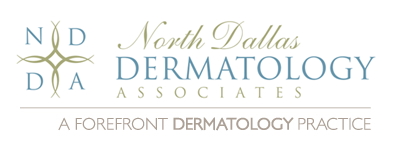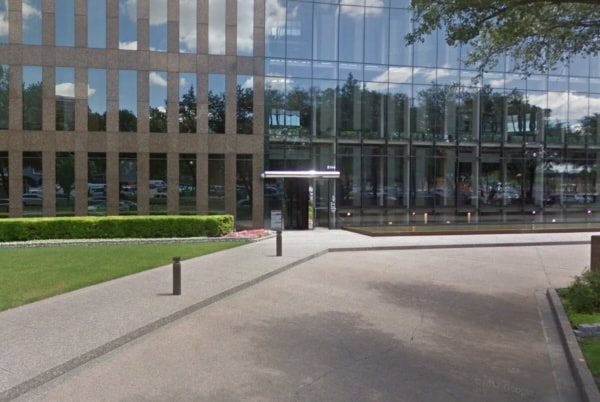Clear Confidence for Acne-Prone Skin
- Posted on: Aug 31 2022

Acne Q&A with Rebecca Marcus, MD
Acne is an extreme confidence killer and, depending on the severity, it can be painful and uncomfortable. It appears when overactive skin glands develop a buildup of oil, cells, and bacteria. Oil glands are stimulated when hormones become active, making acne-prone skin most common among teens. However, it can also affect us at any age – depending on our body’s response to stress, hormone stimulation, and changes in our skincare products.
There are many forms of acne such as hormonal, cystic, and body related. Identifying the form and the cause of our acne helps us determine the proper treatment to clear our skin.
Myths About Acne
- Only teens get acne
- If you have acne-prone skin, you’re not washing your skin properly
- Eating chocolate causes acne
- Accutane is the only way to get rid of acne
There is a misconception that skin care is “one-size-fits-all”. Yet, our skin often requires different products at different stages. Our providers at North Dallas Dermatology Associates can help you with developing an individualized skin care regimen to best fit your needs.
What are some causes of acne?
- Hormone changes
- Family history
- Excessive sebum (oil) production
- Interaction of oil production with acne bacteria
Many elements can cause and contribute to the worsening of acne. Identifying the main cause can help to determine what products or treatments are best for you.
What causes hormonal acne?
Hormonal acne occurs during a period of hormone stimulation. Although, it is most common for it to appear during puberty. Hormonal changes happen throughout different stages of life causing them to appear in adults. Changes in levels of estrogen, progesterone, and testosterone are also all linked to the growing appearance. Women are more likely to experience breakouts due to hormonal changes during menstrual cycles and pregnancy.
How can I treat my hormonal acne?
Hormonal acne can appear in different forms and multiple locations. It’s often assumed the only way to treat it is with Accutane and/or birth control. However, this is not true. In contrast, hormonal breakouts are present in different forms. Topical medications can help address blackheads, whiteheads, and cystic acne.
If Accutane and/or birth control are not viable options for you, our providers at NDDA can help you address your hormonal acne with other medical treatments.
What causes cystic acne and how can I combat cystic acne?
Cystic acne occurs at any age as a result of dietary sensitivities, bacteria, and the overproduction of sebum. Cystic acne is a type of inflammatory acne that causes painful pus-filled acne that forms under the skin’s surface.Cystic acne can be treated with antibiotic creams, gels, and lotions to decrease inflammation and bacteria. Benzoyl peroxide is great for reducing bacteria within large, under-the-skin acne spots. Salicylic acid helps remove excess dead skin cells and bacteria as well.
What is causing my “backne”, “maskne”, or body acne?
“Backne”, “maskne”, and other trouble spots on the body can be caused by an interaction with oily and dirty substances. The presence of dirt, oil, and dead cells can block the pores and lead to inflammation and infection. It is no surprise the implementation of masks during the pandemic has also contributed to the development of acne. Masks are continuously reused and are not often replaced as recommended. Excessive sweating is not the cause of acne. However, if you are not constantly keeping up with exfoliation and the removal of dead skin cells, it will worsen the appearance of acne.
Acne-Prone Skincare Ingredients to Avoid
- Oils
- Parabens
- Fragrance
- Heavy alcohol products
Safe Ingredients for Acne-Prone Skin
- Oil-free products
- Benzoyl peroxide
- Salicylic acid
- Fragrance-free products
Are there alternatives to Accutane or other oral medications?
Blue light is one of the many acne treatments offered at North Dallas Dermatology Associates. This treatment uses wavelengths of light to reduce the growth of bacteria-causing acne. It can be used as an alternative to oral medication. Bluelight is a 23-minute treatment that is done twice a week, for four weeks.
For patients with severe acne, Aminolevulinic acid, known as ALA, is an ideal alternative to oral Accutane. This treatment reduces oil production and minimizes the appearance of pores. We apply ALA to the skin for 45 minutes then follow it with ten minutes of blue or red light. Depending on the severity, we recommend patients book two to four treatments.
Firstly, we apply fruit acid and clay peels and then prepare for extractions with sterile instruments. This treatment reduces acne scarring and improves the skin’s overall appearance.
Which cosmetic treatments help acne?
There is a range of cosmetic treatments to consider pairing with your acne care regimen. These treatments range from medical-grade facial and microneedling to chemical peels and more aggressive laser resurfacing procedures.
HydraFacial is safe for all skin types and has no downtime. Overall, it gently removes dead skin cells and extracts impurities. This treatment simultaneously bathes the new skin with cleansing, hydrating and moisturizing agents. We recommend HydraFacial four to six times a year.
Microneedling is one of our most popular treatments for addressing acne scars.
Through a series of circulating micro punctures to the skin, collagen stimulation occurs resulting in healthy skin with improved texture. Microneedling helps to improve the appearance of acne scars, pore size, and uneven skin texture and reduces fine lines and wrinkles. The downtime for this treatment is approximately 48 hours with redness and dry skin.
Chemical peels range from light to medium depth. These peels improve skin texture and treat acne, melasma, and mild sun damage. Laser resurfacing treatments help to improve overall skin texture and tone and minimize fine lines and wrinkles, scarring, pigmentation irregularities, and skin laxity (to some degree). Chemical peels and laser resurfacing include downtime of a few days up to two weeks.
These are only a fraction of the treatments and solutions available at North Dallas Dermatology Associates. Your skin concerns are our concerns. It’s time to stop relying on home remedies and trendy products to restore your acne-prone skin. Schedule an appointment with our providers to say goodbye to your acne and hello to clear skin.
Tagged with: accutane, acne, acne scars, adult acne, ala, aminolevulinic acid, backne, benzoyl peroxide, blue light, body acne, chemical peels, cystic acne, hormonal acne, HydraFacial, laser resurfacing, maskne, microneedling, parabens, red bumps, redness, salyicylic acid, sensitive skin, teen acne
Posted in: Blog





